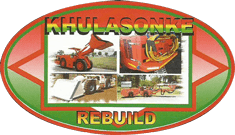A customer would walk into a repair shop with their failed hydraulic component and ask why it has failed after a pretty short time at work. Based on what the repair saw, he would tell the customer what went wrong; wrong oil viscosity, high temperature operation, faulty circuit protection, high contamination levels. Customers will spend thousands to repair their hydraulic equipment where they should rather spend time learning about regular maintenance to their hydraulic systems.
There are people who own hydraulic equipment as well as some mechanics and repair men out there who believe that hydraulics, do not require any form of special attention which means that people will constantly be walking into hydraulic repair shops with their broken hydraulic equipment. The knowledge gap on maintenance and preserving your hydraulics needs to be bridged so that your hydraulics can last as long as possible, avoiding costly downtime or even loss of customers.
The performance, operating pressures and sophistication has increased significantly over the past 30 years. This has become particularly evident in the case of mobile hydraulic equipment. Because of the 2 points previously discussed, modern hydraulic systems are becoming more expensive to repair when they break which is why it is so important for you to perform preventative measures to ensure that your equipment lasts as long as possible which in turn will decrease your operating costs. Many people out there believe they can run a hydraulic system for 10 000 hours and only have to check such things as the fluid level. This is not the case.
You could follow 6 routines so that you can minimise the risk of your hydraulics failing which could result in costly, premature repairs and of course, downtime:
- Maintain the fluid cleanliness
- Maintain fluid temperature and viscosity within optimal limits
- Maintain hydraulic system settings to OEM specifications
- Schedule installation of new parts before they fail
- Follow correct commissioning procedures and
- Conduct failure analysis.
You need an effective maintenance program that is proactive so that you can catch problems before they occur and result in worse problems. These programs can seem expensive but they are rather cost effective. The investments in maintenance programs are quickly recovered due to improved performance and prevention of major problems.
If you own or operate or even maintain hydraulic equipment, you need to be serious about minimising your running costs and implement regular maintenance practices. Khulasonke will repair or even rebuild all your hydraulics on your LHDs and UVs.


